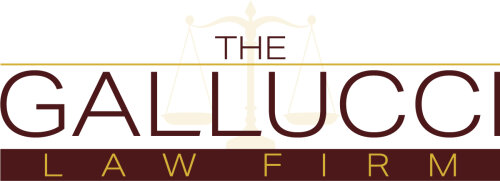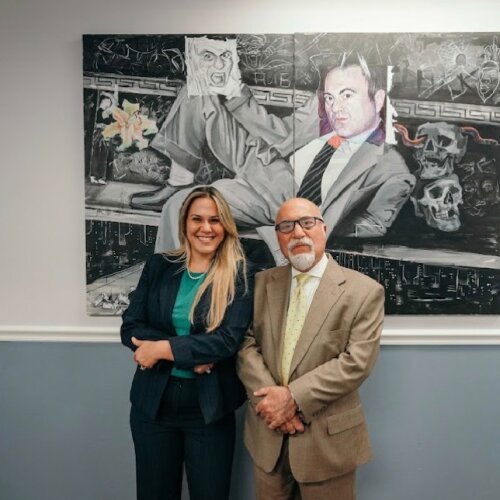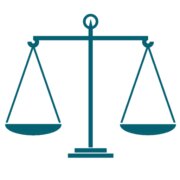Best Drug Crime Lawyers in New York
Share your needs with us, get contacted by law firms.
Free. Takes 2 min.
Or refine your search by selecting a city:
List of the best lawyers in New York, United States
About Drug Crime Law in New York, United States
Drug crime law in New York refers to the body of state statutes and regulations that govern the possession, distribution, manufacturing, and trafficking of controlled substances. The laws are designed to prevent the illegal sale and use of drugs such as cocaine, heroin, methamphetamine, marijuana, and prescription medications without a valid prescription. The New York Penal Law classifies drug offenses into different levels of severity based on the type and quantity of the substance involved, and the specifics of the alleged conduct. Drug crimes range from misdemeanors like simple possession to serious felonies such as drug trafficking. Convictions can carry substantial consequences, including jail or prison sentences, heavy fines, probation, mandatory treatment programs, and long-term impacts on employment and housing.
Why You May Need a Lawyer
If you are facing drug crime charges in New York, having legal representation can be critical for several reasons. Common situations where you may need a lawyer include:
- You have been arrested for drug possession, distribution, or manufacturing.
- Police have searched your home, car, or person and found controlled substances.
- You have been accused of trafficking drugs, which is a serious felony in New York.
- You were caught with prescription medications that were not prescribed to you.
- The drugs were found near a school or in a public housing development, which can increase penalties.
- You believe your rights were violated during a police search or interrogation.
- You are facing a revocation of probation or parole for a drug-related violation.
- You have prior convictions and are concerned about enhancement of sentencing.
A knowledgeable lawyer can protect your constitutional rights, evaluate the strength of the prosecution's case, negotiate plea agreements, seek to suppress evidence obtained unlawfully, and provide guidance throughout the criminal justice process.
Local Laws Overview
New York classifies controlled substances into different "schedules" according to their potential for abuse and accepted medical use. Drug crimes are enforced under Article 220 (Controlled Substances) and Article 221 (formerly Marijuana, now updated as of 2021) of the New York Penal Law. Key aspects include:
- Possession Offenses - Possessing even a small amount of certain drugs can be charged as a misdemeanor or felony, depending on the substance and quantity. For example, possession of cocaine, heroin, or methamphetamine in any amount is typically a felony.
- Sale and Distribution - The sale, intent to sell, or distribution of controlled substances is almost always charged as a felony, with mandatory minimum sentences for certain offenses.
- Aggravating Factors - Penalties are increased if the offense occurs near a school, on public transport, or involves minors.
- Marijuana Laws - While marijuana is legal for adult recreational use in New York, there are still restrictions on possession limits, unlicensed sales, and public consumption.
- Defenses and Diversion - Some first-time offenders may be eligible for drug court programs or treatment-based alternatives to incarceration.
- Collateral Consequences - Drug convictions can result in the loss of driving privileges, ineligibility for some jobs and housing, and immigration consequences for non-citizens.
Frequently Asked Questions
What is considered a drug crime in New York?
A drug crime is any violation of state laws relating to the illegal possession, use, distribution, sale, or manufacture of controlled substances, including narcotics, stimulants, hallucinogens, and unauthorized prescription drugs.
Are all drug offenses felonies in New York?
No, not all drug offenses are felonies. Possession of small amounts of certain drugs may be charged as misdemeanors, but most offenses involving serious drugs or larger quantities are classified as felonies.
Can I be arrested for possessing marijuana in New York?
Adults 21 and over can legally possess up to three ounces of cannabis for recreational use in New York. Possession beyond legal limits or unlicensed sales may still result in criminal charges.
What are the penalties for drug trafficking?
Drug trafficking is a serious felony offense with penalties that can include lengthy prison sentences, often measured in years or even decades, plus substantial fines. Sentences depend on the type and amount of drugs involved.
What should I do if I am arrested for a drug crime?
Remain calm and do not resist arrest. Exercise your right to remain silent and request an attorney immediately. Do not discuss your case with police or anyone else until your lawyer is present.
Can police search me or my property without a warrant?
Police usually need probable cause and, in most cases, a warrant to search your home, car, or person. There are, however, exceptions such as consent, exigent circumstances, or search incident to lawful arrest.
What defenses are available in drug crime cases?
Common defenses include unlawful search and seizure, lack of knowledge of the substance, entrapment, medical necessity, or proof that the substance is not an illegal drug as alleged.
Am I eligible for drug treatment programs or alternatives to jail?
Some first-time or low-level offenders may qualify for diversion programs like drug court, which emphasize treatment and rehabilitation over incarceration. Eligibility depends on your criminal record and the nature of your charges.
Will a drug conviction impact my immigration status?
Yes, drug convictions can have severe immigration consequences, including deportation or denial of citizenship or green cards for non-citizens.
How can a lawyer help me with a drug crime case?
A lawyer can explain your rights, challenge illegally obtained evidence, negotiate with prosecutors, represent you at hearings and trial, and help you pursue the best possible outcome, such as dismissal, acquittal, or reduced charges.
Additional Resources
- New York State Unified Court System - Drug Courts
- Legal Aid Society - Criminal Defense Practice
- New York State Division of Criminal Justice Services
- Office of Addiction Services and Supports (OASAS)
- New York State Bar Association - Lawyer Referral Service
- National Association of Criminal Defense Lawyers (NACDL)
These organizations can provide information, access to public defenders or referrals to private attorneys, and resources for treatment and rehabilitation.
Next Steps
If you are facing a drug crime charge in New York, it is vital to act quickly. Contact a lawyer who specializes in criminal defense and has experience with drug cases. Gather any documents or information related to your arrest or charges and follow your attorney’s advice closely. If you cannot afford a lawyer, ask the court to appoint a public defender. Take advantage of diversion or treatment programs if offered, and stay informed about your rights and obligations throughout the legal process. Your prompt action and informed decisions can have a significant impact on the outcome of your case.
Lawzana helps you find the best lawyers and law firms in New York through a curated and pre-screened list of qualified legal professionals. Our platform offers rankings and detailed profiles of attorneys and law firms, allowing you to compare based on practice areas, including Drug Crime, experience, and client feedback.
Each profile includes a description of the firm's areas of practice, client reviews, team members and partners, year of establishment, spoken languages, office locations, contact information, social media presence, and any published articles or resources. Most firms on our platform speak English and are experienced in both local and international legal matters.
Get a quote from top-rated law firms in New York, United States — quickly, securely, and without unnecessary hassle.
Disclaimer:
The information provided on this page is for general informational purposes only and does not constitute legal advice. While we strive to ensure the accuracy and relevance of the content, legal information may change over time, and interpretations of the law can vary. You should always consult with a qualified legal professional for advice specific to your situation.
We disclaim all liability for actions taken or not taken based on the content of this page. If you believe any information is incorrect or outdated, please contact us, and we will review and update it where appropriate.
Browse drug crime law firms by city in New York
Refine your search by selecting a city.

















